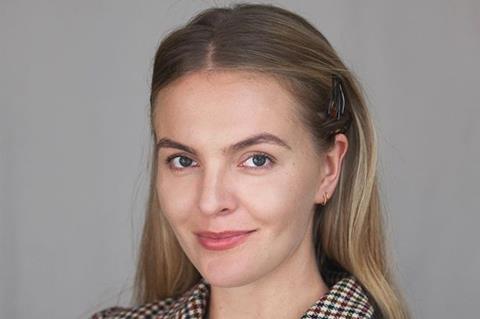
“The first thing I do when I wake up is check my phone,” says Saara Huimerind-Tuksam, the first sustainability, diversity and inclusion officer for Industry@Tallinn & Baltic Event. When an attendee submits an online incident report, it is Huimerind-Tuksam who reads it.
Her role is to provide welfare support to the 700 industry attendees of the Tallinn Black Nights Film Festival (POFF), taking place this month in Estonia. Attendees with films in the festival have always received a ‘host’ at POFF – a member of the festival team dedicated to their needs, who can answer questions and deal with any issues they have during their stay.
Huimerind-Tuksam’s role as a dedicated sustainability, diversity and inclusion officer is being trialled this year for industry guests only, with the potential to expand it for the full festival in future.
“It’s a pilot – let’s test it on 700 people before going to 2,000,” says Marge Liiske, head of the industry programme. “But it is needed. The industry comes and it’s a wild five days in town – anything can happen and that’s a very intense period.”
Huimerind-Tuksam has held various roles at POFF since 2016 including press and communications officer, and Industry@Tallinn & Baltic Event coordinator. “It’s important there is continuity for people,” says Liiske. “You don’t have to talk everything through, which takes time.”
Huimerind-Tuksam believes her professional experience away from POFF also makes her a good fit. She worked for two years in cultural management, as an advisor for the deputy mayor of Tallinn, with a focus on urban planning and sustainability issues. Her further contacts include Natalie Mets, the city’s nighttime advisor, who is responsible for the cultural life and safety of Tallinn after dark; and the commissioner for equal opportunities, an independent official who advises and assists anyone who feels they have been a victim of discrimination.
The sustainability, diversity and inclusion role consists of two parts. For victim support it’s “quite organic” says Huimerind-Tuksam, and is dependent on reports received through the anonymous form. Privacy issues prevent the team from publicly sharing data around these reports; Liiske and Huimerind-Tuksam confirm there have not been any major incidents in the first three days of industry activity.
For any incidents that do occur, the process begins by talking and listening to the submitter in a comfortable environment, and informing Liiske, then getting in touch with an independent volunteer victim support group for all incidents, regardless of scale. This body includes an Estonian film critic who is familiar with the industry. The festival will also talk with an accused party where there is one and alert the police if needed.
Political issues
The more active element of Huimerind-Tuksam’s role is on the sustainability side, where she has been conducting surveys to measure the festival’s carbon footprint; and even checking the festival’s food waste at the end of each day. “I’m joking that I have rubber gloves with me all the time!”
The ongoing conflict between Israel and Gaza is proving a difficult issue for film festivals and beyond, with International Documentary Festival Amsterdam (IDFA) feeling the consequences over the past week. POFF has not yet had any similar problems. “Not that we are aware of – it hasn’t come to us,” says Huimerind-Tuksam. Through her previous roles, she has received training in how to deal with contentious political situations, albeit not specific to Gaza. “We honour freedom of speech, but we understand that it has some limitations. And we do not accept hate speech.”
The festival launched diversity, inclusion and safer space guidelines for the first time this year, published on its website and available at festival information points. It is looking to be more active in its handling of such matters; Huimerind-Tuksam’s role also includes servicing the industry welcome desk in the centre of the festival’s Nordic Hotel Forum hub, where she has been helping to make other festival staff familiar with the guidelines. “It’s still quite a new subject.”
“It’s why we have an officer,” says Liiske. “Everybody can have guidelines that just stay there. But we need an active person to work the guidelines, monitor what we are doing, and a person who is easier for the guests to address. Do you read the terms and conditions when you subscribe to apps? Maybe not. If they see there is an active person dealing with questions, that may raise more interest.”
Huimerind-Tuksam hopes other festivals will take note of her role. “The sustainability subject is something everybody is dealing with in their own way, but it’s good to have a designated person taking care of it during the festival,” she says. “For me, having an officer who people can turn to when something has happened to them, would make me feel a calmer guest in other festivals as well.”


































No comments yet